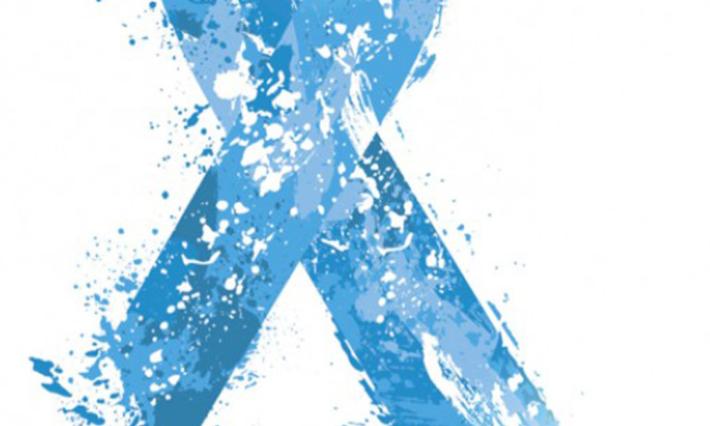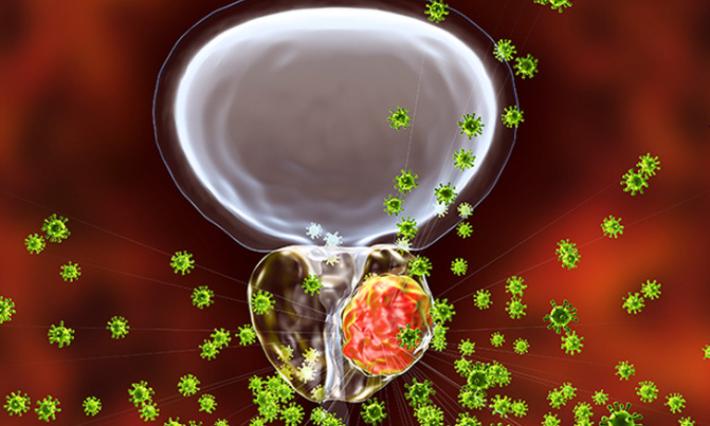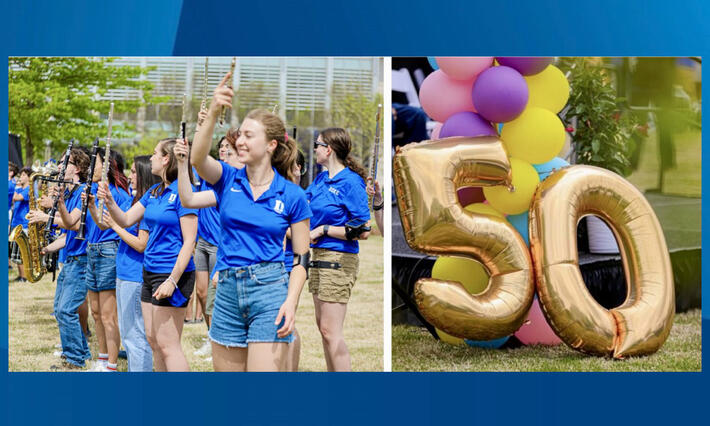



Hoimes Joins Duke Genitourinary Oncology
Christopher Hoimes, DO, joined the genitourinary oncology program at Duke Cancer Institute as Associate Professor of Medicine where he will serve as clinical investigator with a focus on GU cancers, experimental therapeutics, and early phase trials. Hoimes has expertise in immunotherapy and biomedical engineering to advance cancer treatment and diagnostics. As director of GU malignancies at the Case Comprehensive Cancer Center at Seidman in Cleveland, OH, he built research teams that integrated radiologists, pathologists, and urologists with experts in biomedical engineering for novel imaging and drug development approaches. He has particular interest in clinical and preclinical applications of nanomaterials for drug delivery and imaging, antibody-drug conjugates, and immunoengineering. As a clinical investigator in Phase I and genitourinary malignancies, Hoimes serves as principal investigator of over 12 active Phase I, II and III trials. He served on the NCCN guidelines panel for bladder and penile cancers, serves on the SITC expert consensus panel for immunotherapy in bladder cancer, and was a founding member of the NCCN panel on cancer immunotherapy and related complications. “We are excited to bring Chris’s tremendous knowledge and experience and collaborative approach in genitourinary cancers, and bladder cancer in particular, to our group,” said Daniel George, MD, director of genitourinary oncology at Duke Cancer Institute. “As an international expert in bladder cancer clinical research, Chris led early trials that supported the first indication of immune-conjugated therapy in bladder cancer. He is currently co-leading a Phase III trial of neoadjuvant chemotherapy immunotherapy in invasive bladder cancer, as well as studying several novel approaches to combining these strategies in unmet needs for patients with advanced bladder cancer. His research will increase the treatment options for patients at Duke and our region. Additionally, he is also well trained in cancer immunology and provides another interface for us with our DCI Center for Cancer Immunotherapy, as well as with our School of Engineering.” Recognized as a global leader in genitourinary cancers, Hoimes was recently nominated for the Master Clinician Award (2019), awarded the ECOG Symposium Young Investigator Award, and received the Department of Defense Prostate Cancer Young Investigator Award. He presented abstracts at the European Society of Medical Oncology (ESMO) Annual Meetings, American Society of Clinical Oncology (ASCO) Annual Meetings and the American Urological Association (AUA) Annual Meetings. Additionally, he also authored multiple articles published in the Journal of Clinical Oncology, the Journal of Urology and the New England Journal of Medicine. Hoimes is board certified in Medical Oncology and Internal Medicine and was previously on faculty at Case Western Reserve University and Yale University. He received his medical degree from New York College of Osteopathic Medicine and completed Internal Medicine Residency and Chief at Penn State University and fellowship in Medical Oncology at Yale University School of Medicine.

At DCI 50th Celebration, the Sounds of Hope
On Thursday, April 14, 2022, Duke Cancer Institute clinical providers, researchers, staff, and leadership came together to celebrate the 50th anniversary of the Duke Comprehensive Cancer Center (now called Duke Cancer Institute).As the DCI 50th kickoff celebration was gearing up on the grassy circle in front of Duke Cancer Center building in Durham, a few patients stopped by the adjacent Seese-Thornton Garden of Tranquility for some respite.A breast cancer patient of Susan Dent, MD, braced for a long day of chemotherapy infusions. A man with stage 3 melanoma, being treated by Brent Hanks, MD, chatted in the shade of a tree with his wife ahead of his next appointment. A woman on her way to the Duke South clinics, meanwhile, shared her worries over her brother’s recent esophageal cancer diagnosis, their strong family history of cancer, and the importance of keeping up with her mammograms.Joe Moore, MD — who hung up his DCI lab coat in 2019 after a 44-year Hematology /Oncology career — was admiring the newly-installed Sound of Hope bell (a gift of the J. Gordon Wright family in honor of Nancy Wright, a pancreatic cancer survivor) before Jana Wagenseller, RN, escorted him across the grass to a front-row seat, stage right. (Moore had begun his medical career at Duke in 1975 as a fellow and Wagenseller had begun her nursing career at Duke in 1976 and served in multiple leadership roles before retiring in 2004).The Duke University Marching Band made a jubilant entrance onto the green and briefly performed in front of a big-screen slideshow showcasing moments in DCI history before the official program began.

NCCU & Duke Students Learn Mentor-Mentee Communication Skills
On Wednesday, February 27, a cohort of six graduate students from Duke and six from North Carolina Central University plus one postdoctoral fellow from each school — gathered for a mentor-mentee communications workshop — the third in a series of trainings designed to engage underrepresented minorities from both universities in cancer research. The workshop, held at NCCU,was part of the Cancer Research and Education Program (C-REP), the education piece of a $2 million, four-year, National Cancer Institute P20Translational Cancer Disparities Research Partnership grantjointly awarded to Duke Cancer Institute and NCCU in 2017 for lab-based translational research projects on the molecular aspects underlying the increased lethality of prostate and inflammatory breast cancer in African Americans. The C-REP sessions cover professional development, translational cancer disparities research, clinical research operations and community engagement. Carla Oldham, PhD, an assistant research professor with theBiomanufacturing Research Institute and Technology Enterprise (BRITE)at NCCU co-directs C-REP withNadine Barrett, PhD, an assistant research professor in the department of Family Medicine & Community Health and associate director of community engagement and stakeholder strategy for Duke Cancer Institute. One cohort of under-represented minority students has already passed through the program and the second cohort is going through the program now. Mark Dewhirst, DVM, PhD, a mentor of mentors over his 30-year career in radiation oncology and comparative oncology, led the communications workshop with these words: “The core of the mentor-mentee relationship is having good communication such that you can trust each other on both sides of the aisle.” Directing the students to surveys they filled out that revealed their individual communication styles, he continued: “It’s important for you to learn the personality of your mentor or mentee, so you can communicate better with that person; otherwise you can have tremendous conflicts.” Some found they were “action people.” Some “process people.” Others “idea people.” A few, “people people.” Dewhirst, with workshop co-facilitator endocrinologist Leonor Corsino, MD, FACE, MHS, the vice director of the mentoring program — assured the students that all people types were vital for lab work. “Because we’re different we can actually do things together as a group that we couldn’t do by ourselves,” he explained. “You have to have all kinds of people in science to be able to move it forward.” The students spent most of the session working in small groups analyzing a series of hypothetical, often difficult, workplace communication scenarios involving mentors and mentees. Then each group selected a speaker to present, to the room, their critiques as well as their suggestions for making communications better.

